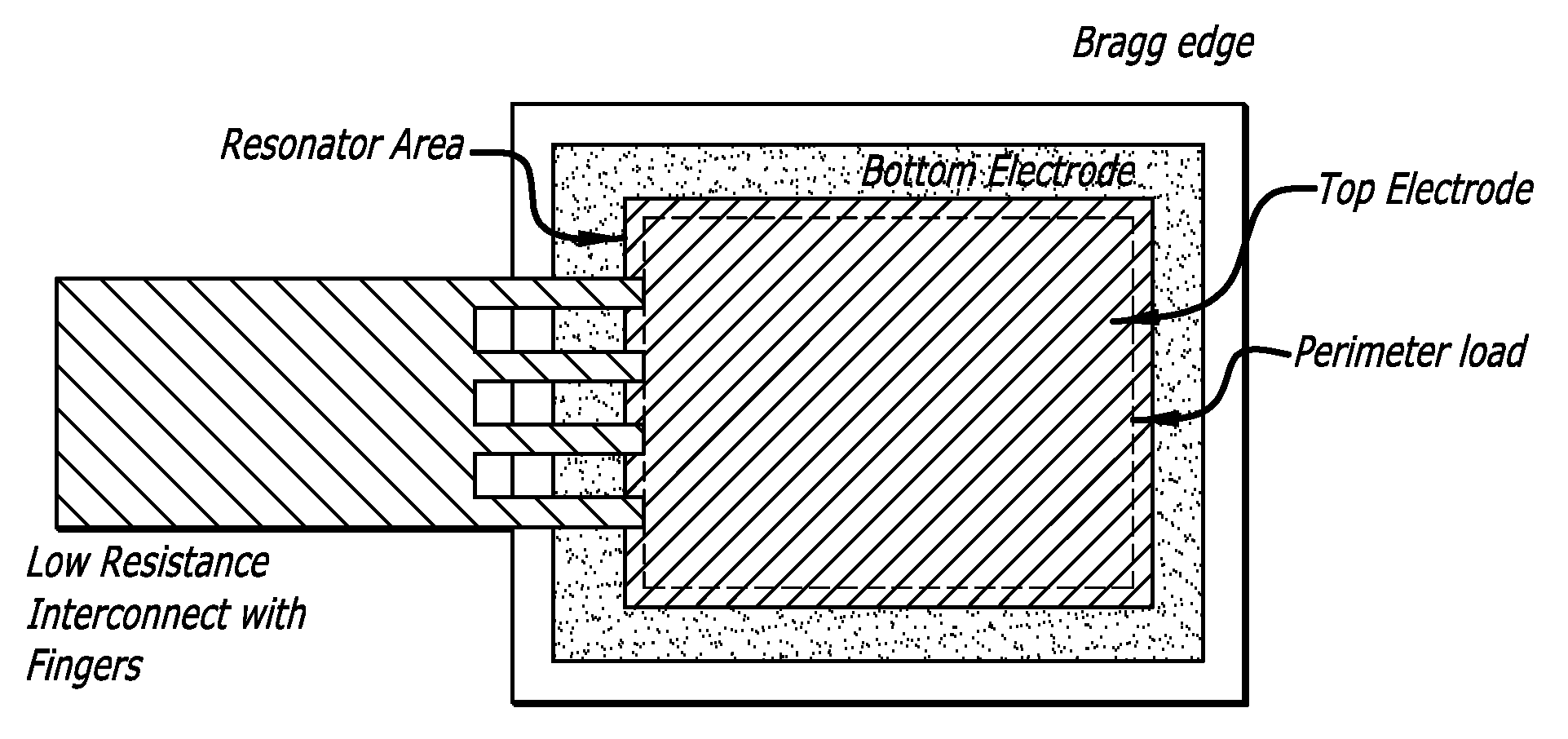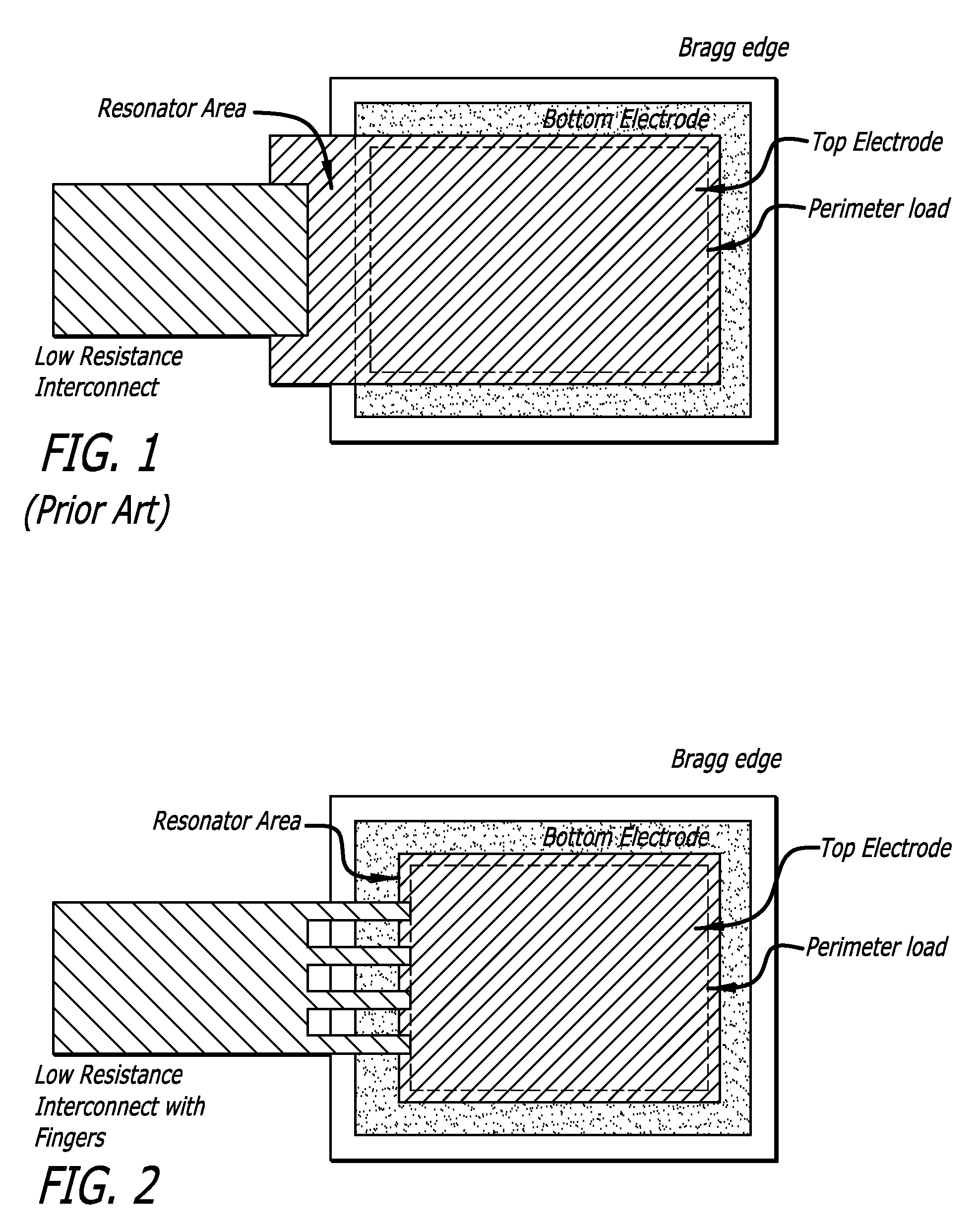Methods of Contacting the Top Layer of a BAW Resonator
a resonator and top layer technology, applied in piezoelectric/electrostrictive/magnetostrictive devices, piezoelectric/electrostriction/magnetostriction machines, impedence networks, etc., can solve problems such as potential additional parasitic acoustic modes and devices that are not new
- Summary
- Abstract
- Description
- Claims
- Application Information
AI Technical Summary
Benefits of technology
Problems solved by technology
Method used
Image
Examples
Embodiment Construction
[0016]The present invention pertains to how to make electrical contact to a resonator with minimal added losses or other impact on the resonator characteristics. In particular, electrical connection must be made to the top electrode of the resonator. Any physical contact to the top electrode will have associated acoustic losses (e.g. losses from parasitic or spurious resonances caused by non-uniform loading). The problem is how to contact the top electrode of a resonator with minimum electrical resistance, minimal acoustic loading at the top electrode edge, and maximize conduction spread (i.e. signal feed). Acoustic problems arise from non-symmetry of the resonator at the electrical contact area, from piezoelectric defects and poor crystal alignment at or near the bottom electrode edge, and from excessive loading or non-uniform perimeter loading. Extrinsic conduction problems arise from high resistance interconnect materials and from excessive width of the interconnect feed. In the ...
PUM
 Login to View More
Login to View More Abstract
Description
Claims
Application Information
 Login to View More
Login to View More - R&D
- Intellectual Property
- Life Sciences
- Materials
- Tech Scout
- Unparalleled Data Quality
- Higher Quality Content
- 60% Fewer Hallucinations
Browse by: Latest US Patents, China's latest patents, Technical Efficacy Thesaurus, Application Domain, Technology Topic, Popular Technical Reports.
© 2025 PatSnap. All rights reserved.Legal|Privacy policy|Modern Slavery Act Transparency Statement|Sitemap|About US| Contact US: help@patsnap.com


